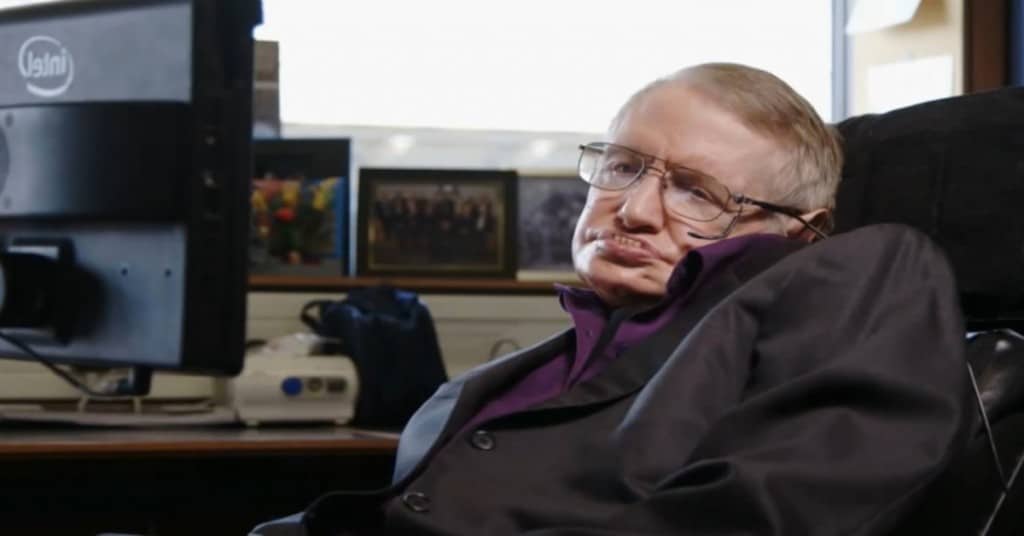Stephen Hawking has one of the greatest minds of our time; he is well known for his work in theoretical physics. However, recently, the iconic physicist applied his brilliant mind to a more emotional matter; depression.
Hawking had a poignant message to people suffering from depression, making poetic comparison between depression and a black hole. The message was, no matter how dark they seem, they are not impossible to escape.
Hawking said: “The message of this lecture is that black holes ain’t as black as they are painted. They are not the eternal prisons they were once thought. Things can get out of a black hole both on the outside and possibly to another universe. So if you feel you are in a black hole, don’t give up – there’s a way out.”
Hawking was undoubtedly speaking from his own personal experiences of dealing with motor neuron disease, he was diagnosed in 1963 at the age of 21, when given two years to live. Having just turned 74, Hawking defied all expectations and 53 years later, he is considered to be one of the most intelligent people in the world.
“Although it was unfortunate to get motor neurone disease, I have been very fortunate in almost everything else,” he said. “I have been lucky to work in theoretical physics at a fascinating time and it’ s one of the few areas in which my disability was not a serious handicap.”
“It’s also important not to become angry, no matter how difficult life may seem because you can lose all hope if you can’t laugh at yourself and life in general.”
He also had an inspiring message for people with disabilities:
“If you are disabled, it is probably not your fault, but it is no good blaming the world or expecting it to take pity on you. One has to have a positive attitude and must make the best of the situation that one finds oneself in; if one is physically disabled, one cannot afford to be psychologically disabled as well. In my opinion, one should concentrate on activities in which one’s physical disability will not present a serious handicap. I am afraid that Olympic Games for the disabled do not appeal to me, but it is easy for me to say that because I never liked athletics anyway. On the other hand, science is a very good area for disabled people because it goes on mainly in the mind. Of course, most kinds of experimental work are probably ruled out for most such people, but theoretical work is almost ideal.
My disabilities have not been a significant handicap in my field, which is theoretical physics. Indeed, they have helped me in a way by shielding me from lecturing and administrative work that I would otherwise have been involved in. I have managed, however, only because of the large amount of help I have received from my wife, children, colleagues, and students. I find that people, in general, are very ready to help, but you should encourage them to feel that their efforts to aid you are worthwhile by doing as well as you possibly can.”
Here is the full lecture for anyone who is having a bad day; maybe it can bring some light!

